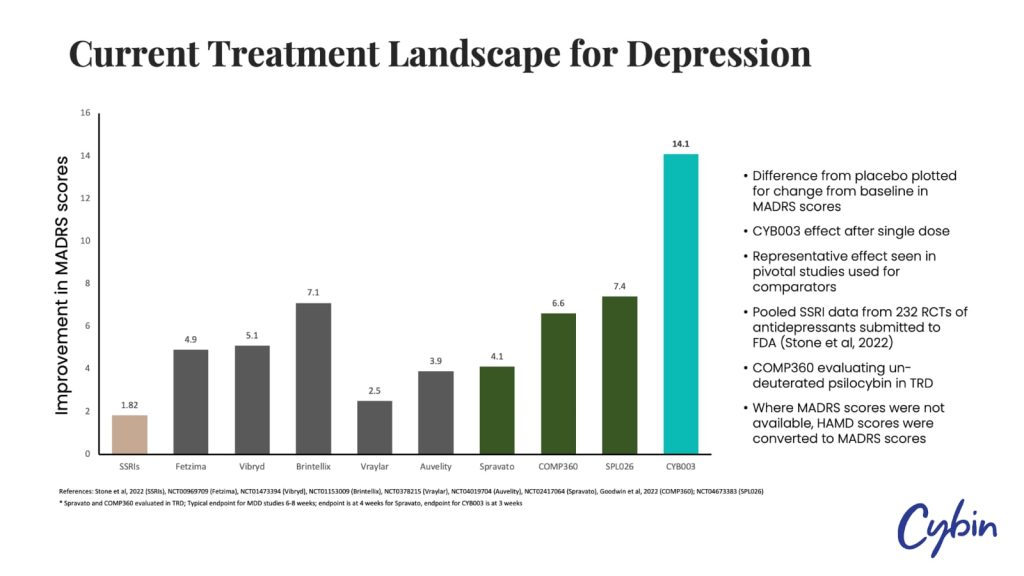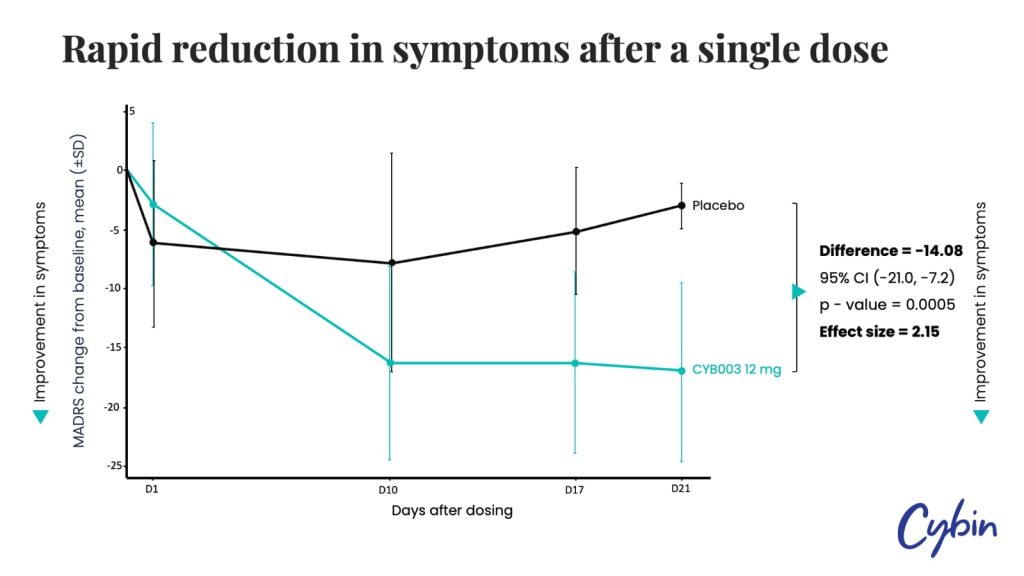300 million people around the world are suffering from depression, including 22 million United States adults. 19 percent of the US population is suffering from some sort of anxiety disorder. 18 percent of the US population is taking an SSRI. The global mental health crisis, affecting over a billion individuals overall, has spurred an urgent demand for innovative treatments. Among those leading the charge is Doug Drysdale, CEO of Cybin, a company seeking to revolutionize mental healthcare through psychedelic research and pharmacology.

Depression and anxiety disorders, which impact hundreds of millions worldwide, have traditionally been addressed by SSRIs – a treatment paradigm that Drysdale believes is ripe for disruption. “I think what is frustrating when you speak to providers in different areas is that the tools they have had are very limited. To me psychedelics give the ability to completely remove someone’s depressive symptoms after a single dose. These treatments are a complete paradigm shift and not like anything we have seen before,” Drysdale comments. This approach, he suggests, could be the most significant breakthrough since SSRIs emerged in the 1980s.
Drysdale, previously having built and turned around three pharmaceutical companies, came to Cybin because he knew the company could make a difference.
Founded in Canada in 2019, Cybin quickly established itself as a scientific leader in psychedelic research. The company, which went public in Canada in 2020 and later listed on the NYSE in August 2021, operates across six countries with a growing team of 55 employees.


Cybin’s core research focuses on a synthetic version of psilocybin, which is naturally found in about 200 species of fungi, and synthetic DMT, a compound naturally occurring in plants and animals, including our own brains. The company aims to enhance these molecules’ pharmacokinetics, increasing their potency and brain-targeting efficiency. “Our goal is to create shorter, more scalable treatment sessions that are more cost effective, while generating new chemical entities in the process,” explains Drysdale.
The company’s drugs, currently in phase two clinical trials, promise a faster response time compared to traditional SSRIs, potentially revolutionizing treatment accessibility and efficacy. Cybin’s strategy involves direct distribution to mental health clinics, ensuring controlled administration and observation.
Cybin’s journey has been marked by strategic acquisitions to bolster its IP and technological capabilities. In January 2021, it acquired Adelia Therapeutics, contributing significantly to its internal expertise. Following this, Cybin’s purchase of the UK-based company Small Pharma expanded its portfolio, now boasting the largest IP portfolio in the entire sector with 33 granted patents and 170 pending.

Notably, the company has attracted attention from major institutional investors, including Janus Henderson and Point 72, Steve Cohen’s Fund. Cohen, a notable philanthropist in mental health, has invested significantly in Cybin, drawn by its differentiated science, deuteration technology and intellectual property. Cybin is the first company Point 72 has invested in, buying 19 million shares and becoming one of the largest shareholders of the company.
Drysdale sees immense market potential, far beyond depression and anxiety. “When you look at depression and anxiety in the US, it’s a 40-billion-dollar market. When you think about the other areas we could attack like substance abuse, tobacco abuse, eating disorders, postpartum depression, we’re looking at a market exceeding $100 billion and for the right cause,” he states.
Companies have already experimented with Ketamine, but the dosing schedule requires 8 visits to a clinic in the first two months. With the use of Cybin’s psychedelics, visits could be twice a year. In fact, according to Drysdale, studies with DMT show a complete remission for up to 6 months in 40 percent of depressed patients. Drysdale’s vision positions Cybin not just as a pharmaceutical company, but a pathway forward of relief. Drysdale is steering Cybin to revolutionize mental health.

















